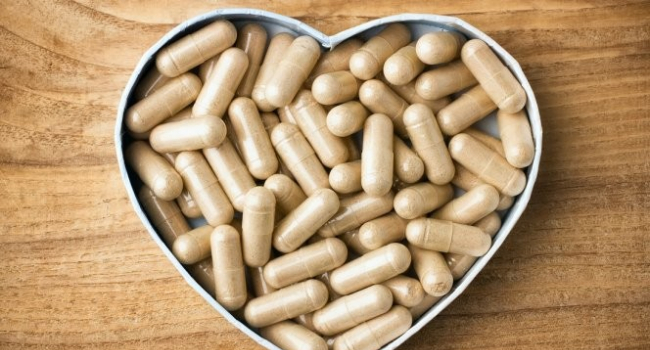- Latest news▼
-
12:16, April 19 Scientists grow human mini-lungs in lab

-
10:23, April 19 JAMA Oncology: Urine test can help rule out high-grade prostate cancer with almost 100% accuracy, study shows

-
18:00, April 18 Daily Mail: Elderly woman in China gets infected with brain-eating amoeba

-
14:19, April 18 Obesity: exercising before breakfast helps you lose weight faster

-
10:42, April 18 The Conversation: childhood trauma can cause pathological hoarding

-
08:37, April 18 Daily Mail: Satiating food reduces cravings for sweets, nutritionist says

-
18:22, April 17 First Armenian-German Conference entitled “Heart Failure Spring School”

-
08:38, April 17 Why do kids usually recover from COVID-19 more easily than adults?

-
14:37, April 16 Daily Mail: intermittent fasting is not suitable for children and women before their periods

-
16:41, April 15 Cell: in carriers of defective BRCA2 gene, sugar consumption increases cancer risk

-
15:04, April 15 305 cases of measles recorded in Armenia so far in 2024

-
14:38, April 15 Food and Environmental Virology: tea contributes to effective coronavirus control

-
12:41, April 15 Daily Mail: vitamin A, B3 and E supplements can be dangerous

-
10:56, April 15 Diabetes Care: evening physical activity is good for the heart

-
08:27, April 15 Women are more susceptible to blood loss and death during bypass surgery than men, researchers say

All materials
Why eating placenta is not such a good idea

For those who are out of the loop, you may have been surprised by this headline. This act, known as placentophagy, is typically only seen in non-human mammals where the mother immediately eats her placenta after giving birth.
But in recent years, some human mothers are also opting to consume their placenta after childbirth. The United States, in particular, has seen a growing interest, especially after public figures like Kim Kardashian West revealed having tried it herself.
"The popularity has spiked in the last few years," Dr. Crystal Clark of Northwestern University Feinberg School of Medicine said back in 2015. "Our sense is that people aren't making this decision based on science or talking with physicians. Some women are making this based on media reports, blogs, and websites."
There are many ways to eat or drink the placenta. For maximum convenience, it can be converted into pill form where it is dried, powdered, and encapsulated. But some women even cook their placenta or turn it into a smoothie.
Now, what is the supposed benefit in consumption? Advocates claim it could protect mothers from postpartum depression, increase energy levels and milk production, reduce pain, and more.
Unfortunately, there is no scientific evidence till date to back up these claims. When looking at the research, positive results have only emerged in animal studies. This one, for example, found an improved pain threshold in female rats that ate their placenta.
But what works for rats does not necessarily translate into human benefits. In short, most experts believe that placenta consumption has no significant impact on human beings. Women who do report benefits are likely experiencing a placebo effect, says Mark Kristal, a behavioral neuroscientist at the State University of New York.
While the placenta does have nutrients, they may be destroyed when exposed to heating or even room temperature. And in some cases, the placenta could actually end up doing harm if contaminated.
"There is always concern for infection, and there are concerns about how the placenta is handled and stored post-birth," notes Kecia Gaither, an OB-GYN and maternal-fetal medicine physician.
Take this case from 2016 for instance — a woman in Oregon decided to consume her placenta in a capsule form during the weeks following the completion of her pregnancy. But within a short period, her baby went on to develop a deadly infection caused by bacteria traced back to the placenta pills.
"Many times, nothing may happen, but there is a risk that an infection is going to occur," says Amesh A. Adalja, senior associate at the John’s Hopkins Center for Health Security.
But even if the likelihood is low, he believes that parents should be made aware of the deadly risk they could place on their child for something that is not backed by science.
Follow NEWS.am Medicine on Facebook and Twitter
- Video
- Event calendar
- Archive
- Most read
month
week
day
- WHO: Nigeria pioneers revolutionary meningitis vaccine 1194
- One-third of women experience menstruation-related migraines, most often during premenopause - study 1193
- Daily Mail: vitamin A, B3 and E supplements can be dangerous 1099
- Food and Environmental Virology: tea contributes to effective coronavirus control 1092
- Cell: in carriers of defective BRCA2 gene, sugar consumption increases cancer risk 1063
- 305 cases of measles recorded in Armenia so far in 2024 1057
- Women are more susceptible to blood loss and death during bypass surgery than men, researchers say 978
- Diabetes Care: evening physical activity is good for the heart 933
- Daily Mail: intermittent fasting is not suitable for children and women before their periods 887
- First Armenian-German Conference entitled “Heart Failure Spring School” 655
- Obesity: exercising before breakfast helps you lose weight faster 556
- Why do kids usually recover from COVID-19 more easily than adults? 555
- The Conversation: childhood trauma can cause pathological hoarding 553
- Daily Mail: Elderly woman in China gets infected with brain-eating amoeba 548
- Daily Mail: Satiating food reduces cravings for sweets, nutritionist says 519
- Find us on Facebook
- Poll





